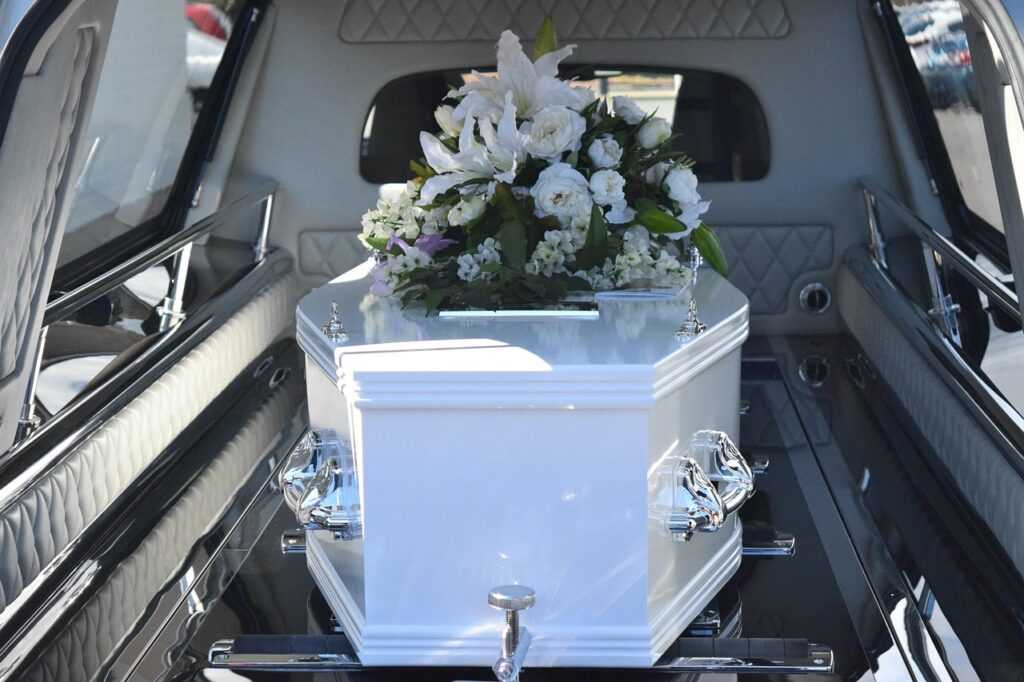The decision to work as a funeral director isn’t the easiest career decision for anyone, but as they say, ‘Someone’s gotta do it’, right? This may seem like a blatant attempt at discouraging you from working as a funeral director, but trust us, it’s nowhere near that. In truth, we just want to prepare you for the challenges ahead so that you can excel at what you should do.
Just in case you were wondering what your work as a funeral director will involve, here are the top roles you must be ready for.
1. You’ll Be the Custodian of the Body
Taking care of the deceased person’s body in the funeral home is arguably the most important role of any funeral director. That’s in consideration that almost everyone who was closely linked to the departed will want to ensure their body is cared for in the best way at the funeral home.
Your work will involve washing, grooming, and dressing the body before placing it in the coffin. In some cases, you will also embalm the body to preserve it temporarily.
2. You’ll Help Loved Ones Realise the Wishes of the Departed
It’s not uncommon for the deceased to have specific last wishes. These wishes may, in some cases, look unrealistic, but you will still have to help the loved ones honour them. Of course, you must pay attention to important factors like health and safety as well as important regulations. That’s one of the top reasons why it’s recommended to take funeral continuing education to stay on top of these requirements. So, if you thought continuing education was only meant to keep you licensed, you might want to change your mind.
3. Guiding the Loved Ones Through the Entire Process
The deceased’s funeral may not be pre-planned, in which case you should guide the friends and family through the details of organising the funeral. You will help them make all kinds of decisions, from the smallest ones to the most important ones. Don’t be surprised when it gets to a point where you have to make decisions you didn’t even know you were supposed to make.
Some of the main decisions that the bereaved family members and friends will trust you with include, but aren’t limited to:
- The day and time of the service
- Venue of the service (park, beach, church, etc.)
- Leader of the ceremony (family member, celebrant, friend, etc.)
- Choosing between cremation and burial
As a funeral director, you must provide as much support or guidance as the bereaved ones will need. In some cases, they will opt that you make all arrangements for them, so be ready for such cases.
4. Personalising the Ceremony
Funerals are often a celebration of the deceased person’s life, in which case the family will work with you to ensure the service honours their loved one’s life in the best way possible. In such situations, you will want to get as much information about the deceased as possible so it’s easier to personalise the ceremony.
5. You’ll Take Care of All Logistics
Your work doesn’t just revolve around trying to create the perfect funeral service. As a funeral director, you must be able to take care of all the little things that matter in the service. In short, you should be capable of handling everything related to the ceremony, unless the family prefers to take charge.
So, whether it’s writing an eulogy, registering the death, arranging/preparing a viewing session, organising music, or even planning an event after the service, you should be in a position to do it all.
Prepare for These and Other Roles
Working as a funeral director can be rather challenging, but that doesn’t mean it’s not doable. The best way to prepare for success is to equip yourself with the knowledge and skills that every funeral director needs.
RocketCert supports you in this process by offering top-tier courses that are designed by experts. That way, you will be ready to handle all the roles and challenges associated with your profession.

 Donemic Grantnurry, founder of the Avant Garde Artistry Hub, is a visionary at the intersection of art and technology. With a deep passion for innovation, Donemic has created a platform that not only informs artists about the latest tools and trends but also empowers them to transform their creative processes. His dedication to exploring the therapeutic potential of art has positioned Avant Garde Artistry Hub as a key resource for artists seeking to improve both their craft and well-being.
Beyond his work in art technology, Donemic is committed to helping artists build sustainable careers. Through insightful articles on marketing, business strategies, and art competitions, he provides emerging talents with the guidance they need to succeed in the competitive world of art. His work continues to inspire and support a global community of creatives who are passionate about blending art with modern technology.
Donemic Grantnurry, founder of the Avant Garde Artistry Hub, is a visionary at the intersection of art and technology. With a deep passion for innovation, Donemic has created a platform that not only informs artists about the latest tools and trends but also empowers them to transform their creative processes. His dedication to exploring the therapeutic potential of art has positioned Avant Garde Artistry Hub as a key resource for artists seeking to improve both their craft and well-being.
Beyond his work in art technology, Donemic is committed to helping artists build sustainable careers. Through insightful articles on marketing, business strategies, and art competitions, he provides emerging talents with the guidance they need to succeed in the competitive world of art. His work continues to inspire and support a global community of creatives who are passionate about blending art with modern technology.